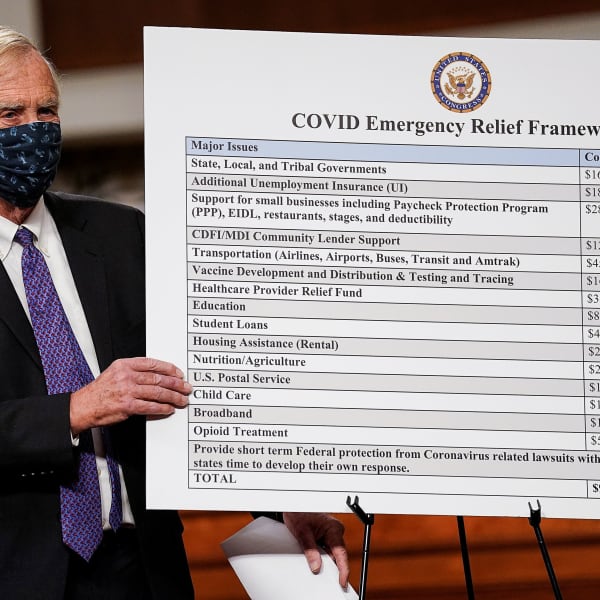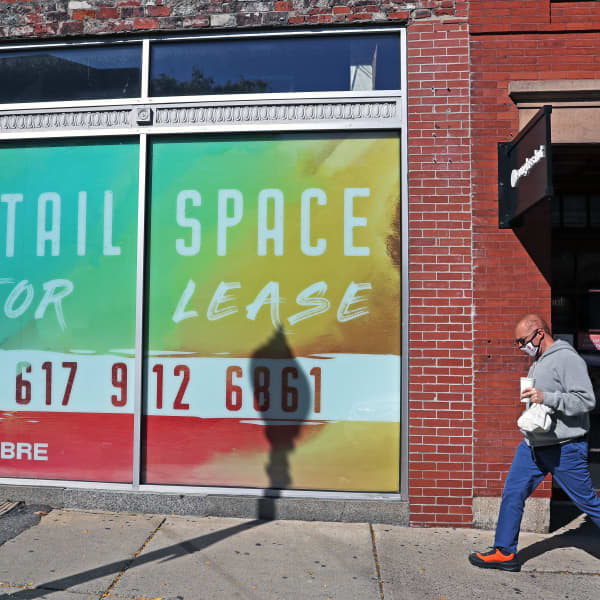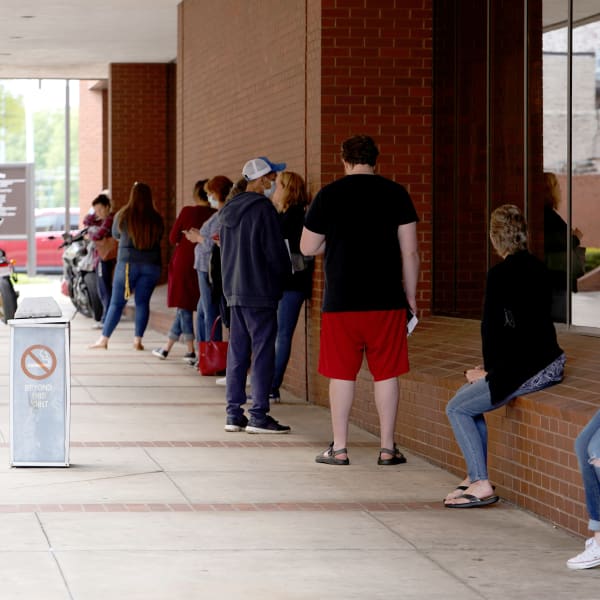President Trump's tax-reform proposal calls for cutting the top corporate tax rate from 35 percent to 15 percent, emphasizing the need "to help the small businesses that are the true engine of our economy." The plan the GOP leadership is expected to reveal on Wednesday is still unknown, though there has been talk of a reduction to 20 percent in the corporate rate, not the 15 percent Trump wanted.
Either way, small-business owners in the latest CNBC/SurveyMonkey Small Business Survey have only tepid expectations about tax reform ahead. Not even a third of them expect changes in tax policy to give their businesses a boost, and just about as many anticipate tax policy changes being a drag on their operations (31 percent expect positive changes; 27 percent negative ones). A narrow, 40 percent plurality don't expect such reform to have much of an impact at all.
The lukewarm outlook runs counter to the broader support Trump gets among small-business owners, nearly half of whom (47 percent) report paying effective tax rates in excess of 15 percent last year. Another complicating factor: Nearly a quarter of all small-business owners indicated they didn't even know how to bucket their effective tax rate. After all, it's complicated, which is part of the point of reform.
What was your business's effective tax rate paid in 2016?
| Effective tax rate in 2016 | Small business total |
|---|---|
| 0% | 7% |
| 1-10% | 10% |
| 11-15% | 12% |
| 16-25% | 22% |
| 26-35% | 18% |
| More than 35% | 7% |
| Don't know | 22% |
Source: CNBC | SurveyMonkey Small Business Survey, Q3
One reason for gaps in perceived tax burdens is the difference between the statutory tax rate and the effective tax rate — in simpler terms, the tax rate as it is written in the law and the tax rate that corporations actually pay after deductions are taken off, while state taxes are added on. Few corporations pay an effective tax rate as high as their statutory rate. According to a 2013 Congressional Budget Office analysis, the effective tax rate for corporations in the United States is 18.6 percent, significantly less than the 35 percent cap.
More from the CNBC/SurveyMonkey Small Business Survey:
Main Street confidence in Trump slips, even among conservatives
Main Street hopes for tax-reform boom decline
For example, small businesses with fewer than 25 employees may qualify for the Small Business Health Care Tax Credit, which incentivizes employers to provide health care for their employees. Among small-business owners, "taxes" and the "cost of employee health care" are named as the top two most critical issues facing their businesses (mentioned by 22 percent and 18 percent of small-business owners, respectively). These competing demands may create a trade-off for small-business owners deciding how to best balance their accounts while providing for their employees.
The new data comes from the quarterly CNBC/SurveyMonkey, which interviewed 2,282 small-business owners from Aug. 10–17.
In a recent interview, House Speaker Paul Ryan said that small businesses can have effective tax rates as high as 44.6 percent and spoke of the need to relieve some of that tax burden. That statistic may be true of a few small businesses, but not the vast majority. In our survey, the same proportion of small-business owners reported effective business tax rates at either extreme: 7 percent say their effective tax rate is 0 percent; 7 percent say their effective tax rate is greater than 35 percent.
In the next 12 months, do you expect tax reform to have a negative, positive or no effect on your business?
| Tax reform expectations | 1-10% tax rate | 16-25% tax rate | More than 35% tax rate |
|---|---|---|---|
| Negative effect | 37% | 22% | 16% |
| No effect | 50% | 39% | 24% |
| Positive effect | 12% | 36% | 59% |
Source: CNBC | SurveyMonkey Small Business Survey, Q3
However, those business owners who fall into that top 7 percent have a lot to gain if Trump's tax-reform proposals are enacted, and they are appropriately the most optimistic at such a prospect. A clear majority (59 percent) of small-business owners in this tax bracket expect changes in tax policy to have a positive effect on their businesses in the next 12 months. They are also more likely than anyone else to name "taxes" as the most critical issue facing their businesses (35 percent do so, compared to just 6 percent of small-business owners with an effective tax rate of 0 percent).
Trump's approval rating is highest among these small-business owners who have the most to gain from tax reform. Nearly 3 in 4 small-business owners (73 percent) who have the highest effective tax rates say they approve of the way Trump is handling his presidency. For comparison, just 41 percent of small-business owners whose businesses have effective tax rates of zero percent approve of Trump, as do only 35 percent of those whose businesses are taxed at 1 percent to 10 percent.
Trump approval among small business owners facing different effective tax rates
| Business effective tax rate | Approval rating |
|---|---|
| 0% | 41% |
| 1-10% | 35% |
| 11-15% | 49% |
| 16-25% | 51% |
| 26-35% | 62% |
| More than 35% | 73% |
| Don't know | 47% |
Source: CNBC | SurveyMonkey Small Business Survey, Q3
Though this group represents a small proportion of small-business owners overall, they stand to reap outsized benefit if tax reform actually passes.
— SurveyMonkey's Jon Cohen, chief research officer, and Laura Wronski, research scientist
The CNBC/SurveyMonkey Small Business Survey is conducted quarterly using SurveyMonkey's online platform and based on its survey methodology.




